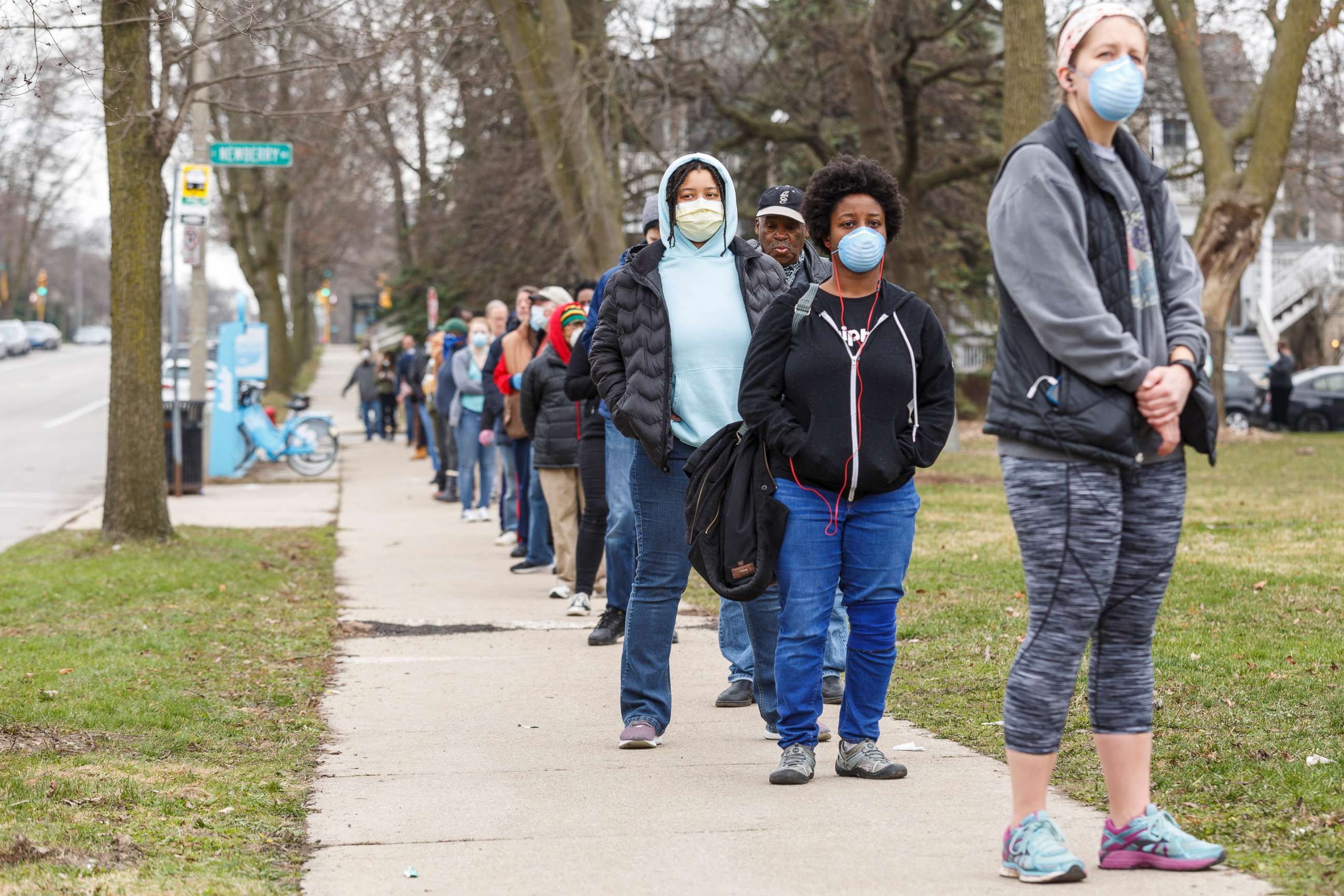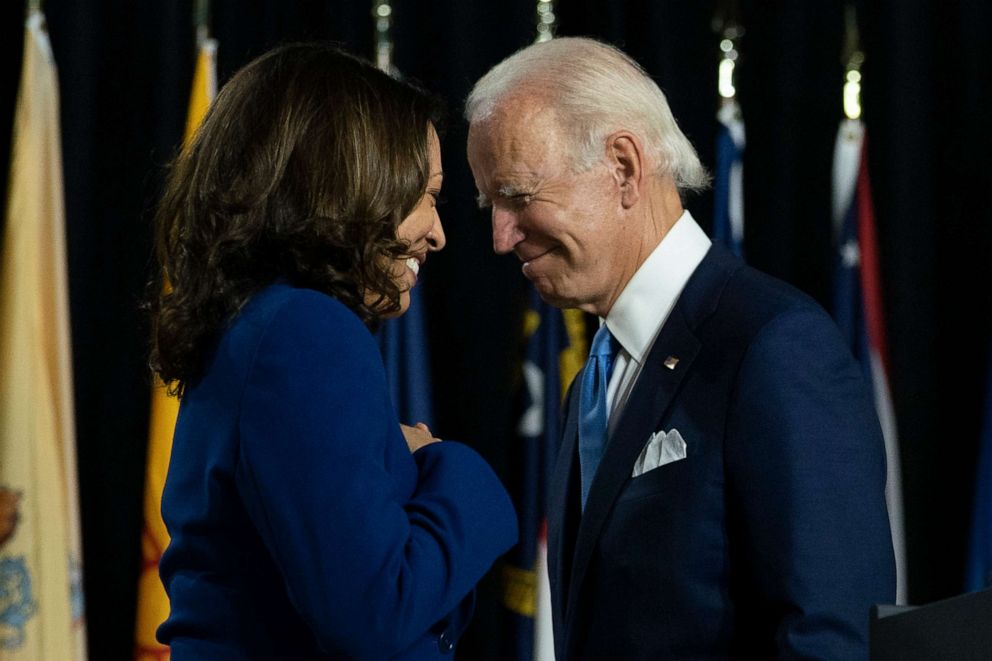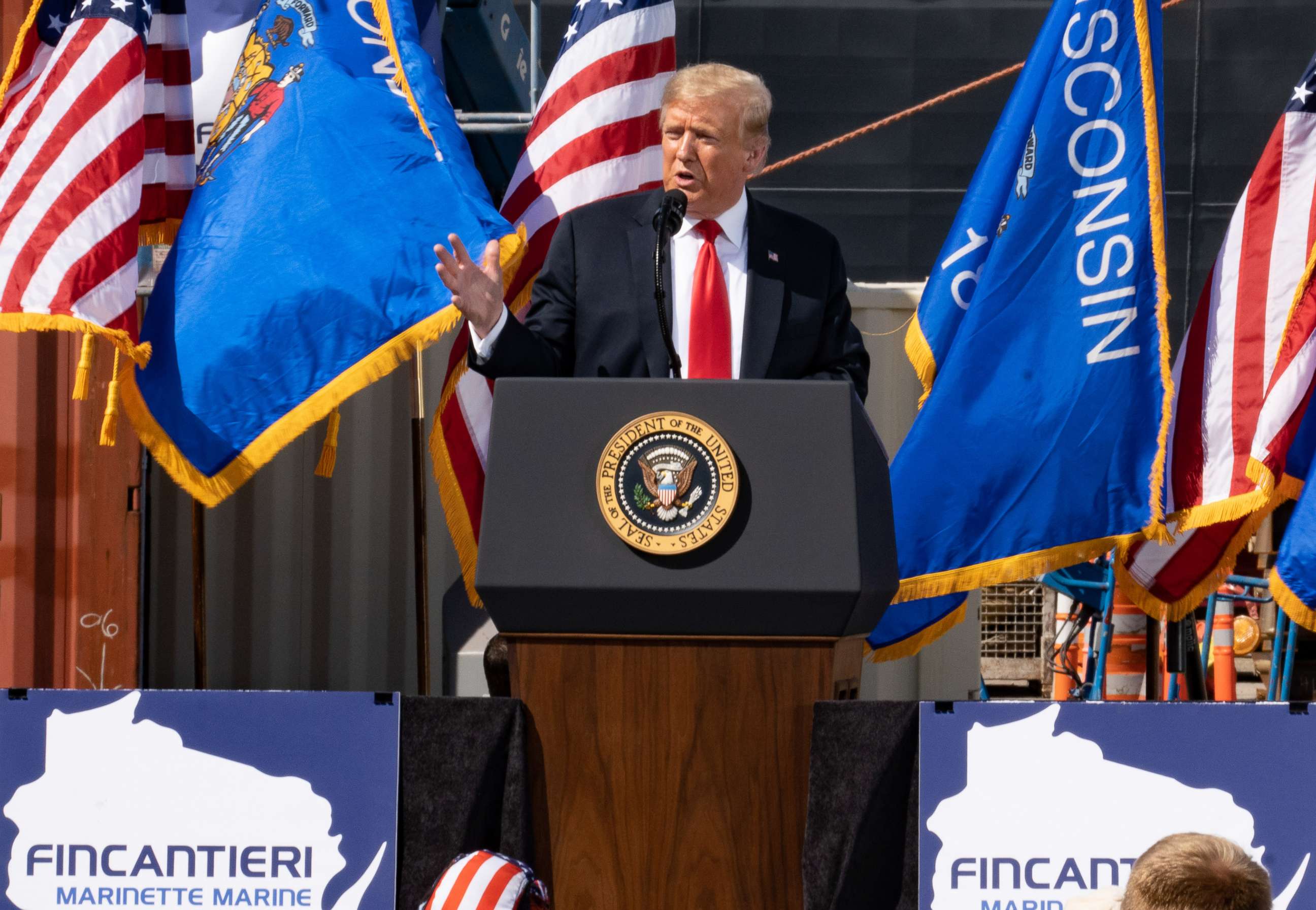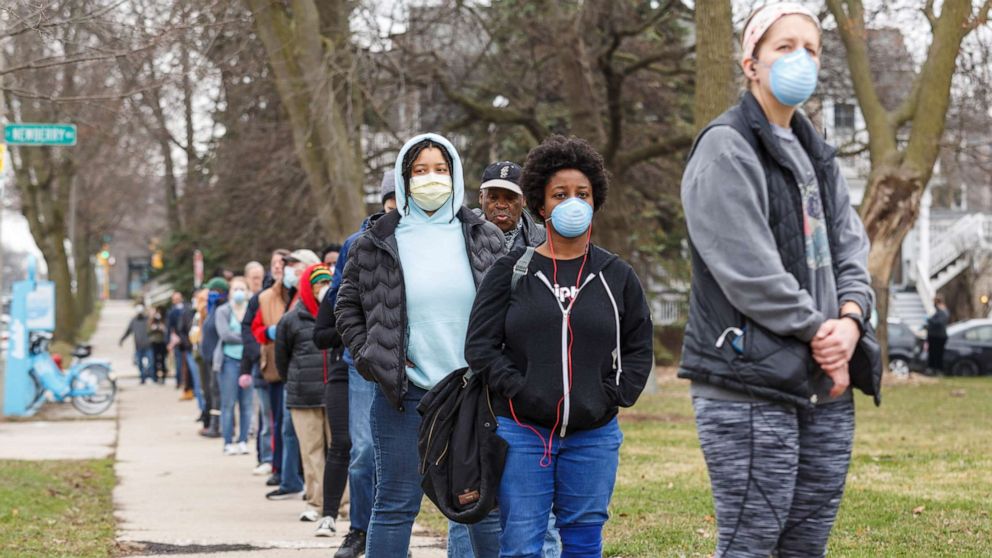How voters' opinions in battleground Wisconsin could determine presidential race
In a state President Donald Trump won by less than a point in 2016, socially distanced French toast and eggs at Frank's Diner in downtown Kenosha, Wisconsin, come with a slate of opinions revealing how a battleground state could well determine the presidential race.
There's the college student who says she's definitely going to vote for former Vice President Joe Biden, a mask-clad man who plans to vote for President Donald Trump a second time and a young first-time voter who says, plainly, "neither" on Trump or Biden because she plans to vote for a third party instead.
And for many, the politics are inseparable from the coronavirus pandemic.
The pandemic has pushed Americans to the highest unemployment rate since the Great Depression, drawn structural racism into plain sight with Black and brown people dying at higher rates, and heightened concerns over national debt as the government tries to plug holes in the economy with multi-trillion-dollar stimulus efforts.
In 2016, Trump took Kenosha County by a mere 238 votes -- flipping a county that voted for former President Barack Obama in both 2008 and 2012.
Swing counties like Kenosha propelled Trump to take Wisconsin by a razor-thin margin of just over 22,000 votes.
For many, 2020 has become a referendum on the president's handling of the pandemic. According to recent polling by Marquette Law School, only 40% of Wisconsin registered voters approve of Trump's handling of the coronavirus, while 58% disapprove.
For Lori McCammon, a resident of Alma, Wisconsin, the pandemic response is another reason she regrets casting her ballot for Trump in 2016.
McCammon, 65, was initially drawn to him because of his hardline stance on immigration. McCammon was living in Southern California in 2016 and said her proximity to the U.S.-Mexico border made the issue feel more relevant.
"The ballot wasn't even cold in the box and I'd already regretted it," she said. On the pandemic, "he has completely failed us," McCammon said.

Asked if she had a message for the president now, McCammon said, "Just please do something about this pandemic. I'm begging you. Please do something and quit making it political."
Come November, McCammon said she's decided to vote for Biden.
"I have voted Republican for most of my adult life," she said. "I don't know if I will ever vote Republican again."

Outside of Kenosha County, in more rural areas of Wisconsin, Democrats hope to see Trump's popularity slip in places where they previously expected him to continue to gain steam. According to the Milwaukee Journal Sentinel, Trump gained the most ground in small towns over former-Obama territory.
Wisconsin lost 10% of its dairy farms over the last year -- over 800 farms -- because of a milk surplus driving down profits. Though the issue predates the coronavirus, farmers like Lynn Hicks want to get the message to the White House that they're still struggling every day.
"I'm a small guy -- I'm just a drip in the pail," she said.
Hicks has a small family farm in Gilman, Wisconsin. She supported Trump in 2016 and still values his "tough talk" over what she's seen from Biden. But she doesn't feel like Washington is listening, she said, despite Trump's promises four years ago to "drain the swamp" and focus on Americans who'd been left behind.
"Yet I'm here, day in and day out, providing and doing what I need to do to help put my part into the bigger picture," she said. "And right now I don't feel that that's necessarily appreciated, or sometimes just simply taken for granted."
Likely voters in the state, as polled by Marquette Law School, found Biden was leading Trump by a five-point margin, 49% to 44%. But experts still caution the state could go either way.
"My sense is that Wisconsin will continue to be very, very close," said longtime conservative talk-show host Charlie Sykes, who recently wrote a book, "How the Right Lost its Mind."
According to Sykes, the election could largely come down to Democrats' ability to garner enthusiasm and turn out the vote -- though Republicans, too, could be up against a challenge as Trump ramps up his baseless attacks on mail-in voting.
"I'm hearing that from Republicans that they're concerned that Donald Trump's attack on mail-in voting might actually suppress his own base because Republicans in Wisconsin have been using mail-in voting for many years," Sykes said.
That includes Erin Decker, the Republican Party chair in Kenosha County.
"I actually absentee vote all the time," Decker said.
"I know that some people nationally are leery of it," Decker said. "There's just people out there that -- they want to stick that ballot in that machine and make sure that they hear a beep."
Voters across the state watched during April's primary as in-person voters were met with long lines and fewer polling locations, a dangerous combination during the pandemic. In Milwaukee, where voters normally have access to around 180 polling locations, just five were open.
More than 60% of votes were cast absentee, so as to avoid voting in person during the pandemic, up from 6% in a typical year, according to the Wisconsin Elections Commission.
In November, the rate of absentee voting is expected to stay abnormally high -- and the commission intends to embark on a voter education campaign to combat the mistakes of April. Election officials recommend people request their absentee ballots in September so they can mail them back in at least a week before Election Day, which is the deadline for ballots to be returned.
With 79 days left, Democrats are trying to defend Biden's lead without the ability to directly connect with voters on the ground, given public health concerns about travel -- a challenge now that the Democratic National Convention in Milwaukee has gone virtual.
The campaign has hired staff with extensive experience in Wisconsin.

Meanwhile, Trump scheduled a visit to the state Monday, highlighting Biden's absence and painting Democrats as repeating mistakes of elections past, when 2016 Democratic nominee Hillary Clinton declined to campaign in Wisconsin.
"We're disappointed, obviously, that Joe Biden is not going to be in Milwaukee next week to accept the nomination. But I've heard nobody upset or angry about it," said Hawkins, the Kenosha county Democratic Party chair.
"We've got some time before the election. So we're hoping that Joe Biden and (Sen.) Kamala Harris are going to be able to come to Wisconsin. People are very enthusiastic about this election," she said.
ABC News' Sarah Kolinovsky and Ashley Brown contributed reporting.




